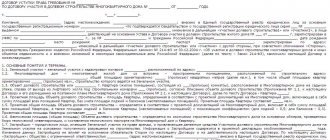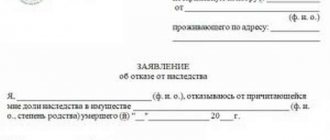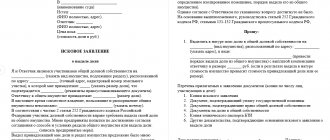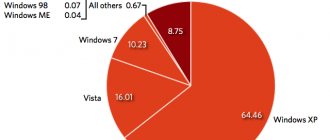Such as tax exemption, house repairs at the expense of the state, reduction of utility bills, protection from fraudsters, guarantees of obtaining housing to replace the one lost in the event of a fire, and others, the privatization of an apartment is a pressing issue. This is primarily due to the fact that when you receive living space as your own, you can dispose of it entirely at your own discretion. This is necessary if the owner intends to sell the property, exchange it for another property, bequeath it to an heir, give it as a gift, rent it out, or register it to someone.
As you know, the process of transferring real estate from the ownership of the state, municipality, to an individual is regulated by Russian legislation in a strict and clear manner. According to it, it is possible only with the consent of all residents, that is, those registered in it. But, unfortunately, sometimes it happens that one of the citizens registered in the apartment is against re-registration or does not want to become a participant in it. If it is not possible to obtain consent from such a person, other residents are often lost and begin to act incorrectly or not act at all. Therefore, let’s look at how you can get out of the situation if one thing is missing: the tenant’s consent.
Save your time and nerves. and within 5 minutes receive a free consultation
professional lawyer.
Basic Concepts
So that if one of the people living in it prevents this, you can start by finding out what this person’s rights to privatization are in general. According to the law, all citizens have housing if they:
- registered at the place of residence in this apartment on a permanent basis;
- have not participated in privatization before.
Regardless of how long a citizen lives in an apartment, if he has a temporary registration in this living space, he does not have the right to vote regarding privatization and cannot become a participant in it.
Also, a citizen who was previously a participant in it cannot influence the decision on privatization. In this case, his consent will not be required at all, since, according to Russian legislation, it is possible to become a participant in privatization only once.
Legislative framework
First of all, you need to understand what regulations need to be followed in this matter. itself from the very beginning took place and is happening in accordance with the Law of the Russian Federation No. 1541-1 “On the privatization of housing stock in the Russian Federation” (hereinafter referred to as Law No. 1541-1). Adopted back in 1991, this act is still in force, although a significant part of its norms has already lost force.
In addition, it is necessary to remember another law, already recent. After privatized housing has been transferred into the ownership of a citizen, it must be registered - and here the Federal Law “On State Registration of Real Estate” No. 218-FZ, which came into force on January 1, 2021, should be applied (hereinafter referred to as Law No. 218-FZ) .
Finally, certain issues relating to the status of residential premises and the right of ownership to them are regulated by the Housing (LC) and Civil (CC) codes of the Russian Federation, respectively.
Rules regarding the privatization of part of residential premises
It should be noted that Law No. 1541-1 in all its norms speaks exclusively about the entire apartment . The concept of “privatization of part of the housing” is not used in any form. The general procedure provided for by this law for the privatization of an apartment is as follows:
- the necessary documents are prepared;
- an agreement is concluded on the transfer of ownership of the apartment to the citizens living in it free of charge;
- For each of the privatization participants, a share in the right of common ownership of housing is registered.
However, civil law also allows transactions made with part of the apartment . In particular, the sale of a part is expressly mentioned in Art. 558 Civil Code of the Russian Federation.
When talking about privatizing part of an apartment, you need to remember the following circumstances:
- Privatization according to Art. 2 of Law No. 1541-1 is possible only for residential premises provided under a social tenancy agreement.
- According to Art. 62 of the Housing Code of the Russian Federation for social rent, not only entire apartments can be provided, but part of the apartment if it is an isolated residential premises.
Thus, we can conclude: privatization of part of the apartment is possible - but only on the condition that the social tenancy agreement was changed in such a way that its subject was not the entire apartment, but a separate living space in it. In fact, in this case, a separate apartment turns into a communal one.
IMPORTANT : Without physical division of the apartment, it is impossible to talk about the privatization of any part of it. It is also impossible to privatize a room if it is a walk-through room and cannot be isolated.
When there are objections
In the case when all residents have the right to privatize the property, but the consent of one of them cannot be achieved for some reason, difficulties arise.
Often, the decision to re-register municipal housing is made mutually at general family meetings. Here it is important to clearly convey information about the advantages of this design, explain what advantages each participant has, why and why they need to register their ownership. It may be mentioned that only citizens registered there have the right to live in municipal housing, and registration can only be done with the written consent of all residents. If one person is against privatization, it can be recalled that in the event of an obstacle, the remaining, willing participants may simply not allow this person to further register this person’s spouse or his adult children in the apartment.
Moreover, if a family lives in a municipal apartment in which only one person is registered in this living space, who does not give consent, the remaining consenting participants have the right to demand the legal eviction of unregistered citizens. This can be done in a fairly short time by writing just one statement of claim to the court.
What does this procedure do?
This process gives its owner the following bonuses:
- The ability to own, use and dispose of real estate.
- Register and settle other persons.
As you can see, there are advantages in this situation, however, the privatization of a share in municipal housing is a pipe dream.
The fact is that the legislation completely legally allows for the privatization of a municipal apartment in its entirety , but a specific part of it is simply impossible.
A few years ago, such an action was possible only due to the fact that then the legislation was not sufficiently developed to remove attention to this issue.
Today, when changes have already been made to the housing code, such actions are simply impossible due to the fact that this is contrary to the law .
When the tenant is away
There are cases when it is impossible to obtain the consent of one of the registered residents due to the absence of this person, who, for example, changed his place of residence quite a long time ago. In this situation, you can re-register an apartment by filing an application with the court at the location of the municipal apartment with a request to remove this person from registration. According to the law, if a citizen does not appear at his place of registration for a long time, he loses his right to use it and, accordingly, the right to living space. In this case, it does not matter at all whether the new place of residence of the absent person is known or not. You can also file a claim to declare an absent citizen missing, however, in this case the legal process will drag on, and ultimately the request may be rejected altogether if the missing person turns up.
To privatize a municipal apartment, the consent of a citizen evicted by a court order is not required; his opinion will no longer be taken into account. However, when submitting an application and documents for re-registration, a court order on discharge must be provided.
Step-by-step instruction
In order for only part of an individual municipal apartment to be privatized, several stages must be completed.
Separation of personal accounts
To begin with, residents should resolve the issue of paying utility bills on separate bills . Legislatively, this procedure is regulated only for those cases when one of the residents has ceased to be a member of the family of the person with whom the social tenancy agreement was concluded, but retained the right to live in the apartment (Part 4 of Article 69 of the Housing Code of the Russian Federation).
Also, the possibility of dividing accounts is provided for by Resolution of the Plenum of the Supreme Court of the Russian Federation No. 14 of 2009, which summarized the practice of considering cases related to the application of the norms of the Housing Code of the Russian Federation. You can split the bill as follows:
- With the consent of both all residents and the local authority managing municipal housing. In this case, two separate agreements are simply signed, and payment for accommodation and utilities is split between two payers.
- In court, if agreement could not be reached.
Some practicing lawyers advise additionally, after separating accounts, to submit an application to local authorities with a request to officially transfer the apartment to communal status. But it should be noted that everything here will depend on the will of the officials - the prospects for the trial in this case are ambiguous.
Conclusion of a separate social rental agreement
Law No. 1514-1 requires that the privatized premises be provided under a social tenancy agreement. Consequently, in order to obtain ownership of part of the apartment, the tenant must ensure that a separate agreement is concluded with him.
To do this, he needs to submit an application to the local authority dealing with the management and disposal of municipal housing. The law does not contain requirements on how the application should be drawn up, so it can be submitted in any form. However, to be on the safe side, it is recommended:
- or submit two copies through the office - one remains under consideration, on the second the authorized employee puts an acceptance mark with the date and his signature, and this copy remains in the hands of the applicant;
- or send by registered mail with notification and a list of the contents.
These measures are necessary in order to prove later in court that the application was submitted. The fact is that local authorities are not very willing to divide apartments and conclude separate agreements, and therefore it is possible that the tenant will have to get his way in court.
If the agreement was nevertheless concluded (peacefully or through court), you can move on to the next step - directly registering the allocation of a separate part.
Room allocation
In order for a room to be privatized, it must be registered in the cadastral register and technical documentation for it must be drawn up.
The first step will be to contact a cadastral engineer and draw up a technical plan for the room. This document contains the following information :
- room area;
- its location in the house, on the floor and in the apartment;
- cadastral numbers of the entire building and the apartment in which the room is located;
- building floor plan;
- reference to coordinates on the ground.
It must be remembered: only a person who has the appropriate permit , is a member of a self-governing organization and is included in the register of cadastral engineers can draw up a technical plan. The status of the engineer with whom the contract is concluded can be checked on the official website of Rosreestr.
Once the technical plan is ready, you can contact local authorities and conclude a privatization agreement. In this case, the procedure for registering a room as a property will be exactly the same as for the privatization of a separate apartment.
When the contract is concluded, the new owner must contact Rosreestr and register his ownership in the Unified State Register of Real Estate. From January 1, 2021, cadastral registration can be carried out simultaneously in accordance with Law No. 218-FZ. You can apply for registration:
- Appearing in person at the local office of Rosreestr.
- By submitting an application and a set of documents through the MFC (“My Documents” or a similar system operating in a specific region).
- Using an electronic application and electronic documents on the State Services portal or on the official website of Rosreestr.
Is it possible to use the exchange?
Often, as a way to privatize part of a municipal apartment, exchange is called - voluntary or forced. According to Art. 72 of the Housing Code of the Russian Federation, a citizen using housing under a social tenancy agreement has the right to exchange it for another premises, including two smaller ones, if there is no violation of the rules regarding living space.
However, this method cannot be called an option for allocating a part of an apartment: in essence, the object of privatization is changing.
However, registering ownership of two different apartments received through an exchange is usually easier than registering the allocation of one or two rooms in separate municipal housing, which initially does not have communal status.
How to be
But what to do if all registered residents have the right to privatization, everyone is present, but one of them categorically refuses to give their consent and does not intend to formalize the refusal either. In this case, you can privatize only part of the apartment. The main issue here will be the division of living space. All residents have the right to use the property, but in the case of division for privatization, in different shares. For example, if there are three rooms in an apartment, one of which is occupied by one of those who are against it, you can privatize housing without this room. Common areas will also be divided and a portion can be privatized, in proportion to the area of the rooms that will be privatized. If it is not possible to negotiate and document the division peacefully, the court will do it.
The calculation will proceed as follows: if, for example, two privatized rooms occupy half of the living space, the owners of the privatization are entitled to exactly half of all common areas. It is impossible to prohibit the use of any of them, but after re-registration it will be possible to sell your share.
The information in this article is provided for informational purposes only. We recommend that you contact our lawyer.
Question:
Please help me resolve the issue. We want to privatize the apartment. It was received by our grandfather in the early 80s. Since then, the grandfather moved to live in his own house and left the apartment with his grandmother. Now there are eight of us registered in this apartment, including our adult children. But two relatives do not want to privatize the apartment for everyone. They believe that our children should be discharged and privatized fairly for only five, which I cannot agree to. What methods are there to force relatives to forcibly privatize an apartment?
Lawyer's response:
To privatize municipal housing, the will of all citizens permanently registered in the apartment is required. Their list is an appendix to the social tenancy agreement. You can also find out who has the right to use housing by obtaining an extract from the house register.
What to do if one of your family members (former family members) ignores your proposal to privatize the apartment?
There is no legal way to force a person to exercise his right to privatize an apartment. The answer to the question - is it possible to privatize an apartment in the absence of the consent of one of the residents - is disappointing. If the cohabitant does not want to privatize the apartment and is ready to document this, such a refusal must be certified by a notary and attached to the other documents required for privatization when submitted to the administration.
It is impossible to privatize only a part (share) of an apartment, which is confirmed by numerous judicial practices. This scheme is provided only for communal apartments, in which a certain room or several rooms are allocated as a separate property.
Is it possible to privatize a part, a share of an apartment, a room in a municipal apartment?
The most common method is shared privatization of municipal real estate. True, emphasis should be placed on the legal concept of “share” - this is not a separate room or footage, but a property right to a privatized apartment. For example, if a family wants a 2-room municipal housing, this does not mean that the father will get a living room, the mother a kitchen, and the child a single room.
Privatization means that housing will belong to both the father, mother, and child under the right of shared ownership. The size of the shares is established by agreement of the parties, but taking into account the interests of the child (if any). The rights of minors are protected by the guardianship and trusteeship authorities (CCA).
It is prohibited to privatize only one room in a municipal apartment . But the following is allowed: if the object is transferred to communal status, privatization of the room will become possible. The main difference between communal housing and municipal housing is the cohabitation of two or more families in isolated premises (rooms). Municipal real estate is similar to privatized property - the family lives in a separate room.
Question: Hello! My sister and I live in a 2-room municipal apartment under a social tenancy agreement. My sister wants to privatize part of the housing (one room), and leave the other to me. Is it possible to do this?
Lawyer's response:
The law prohibits the privatization of individual parts of a municipal apartment if the housing itself is not fully registered. Therefore, your sister will not be able to become the owner of a separate room. But you can privatize the entire property, and after signing the contract, determine your shares (for example, allocate a separate room to your sister). The housing will become personal property, and the sister will be able to dispose of the received share at her own discretion.
Option 2
Evict the person who disagrees from the apartment through the court. This is possible if the citizen does not use the residential premises, and his absence is permanent and not temporary. At the same time, fees for social rent and utility bills are paid by other family members, and witness testimony and other evidence indicate that the citizen has long changed his place of residence and thereby terminated the social tenancy agreement in relation to himself. After such a person is discharged from the apartment, privatization can begin without his consent.
Option 3
If one of the unwilling parties has already used his right to privatization in relation to other property, his consent is not required. This circumstance can be confirmed by notarized copies of the contract for the transfer of ownership of another property or an extract from the Unified State Register of Real Estate in relation to the privatized property.
Realization of a citizen's right to receive state property for use requires compliance with many legal nuances of various kinds, among which is such a procedure as privatization without the consent of persons registered in the home.
Is it possible to privatize an apartment (share in an apartment) without consent?
Hello, I live abroad, but am registered in Russia. The stepmother and her son privatized the apartment without me. In turn, I do not want to privatize the apartment, or rather, for the property to pass into their hands. Can an apartment be privatized without my consent?
- The second way to privatize an apartment if not everyone agrees is to find out the right of people to participate in the procedure , since despite the fact that they live in the apartment, they simply may not have such a right. If one does not agree and simply lives in the apartment, but is registered at a completely different address , then his opinion will not be taken into account when submitting documents.
- If a person is registered in a given apartment and has already used this right , he cannot resort to it again. And, accordingly, his consent also does not need to be asked.
- There is a separate category of people who are registered in the apartment, but either have not lived for a long time or have not appeared (or have been declared missing). If it is not possible to obtain consent from such persons, then through the court such residents can be discharged as having lost the right to use the living space.
- If a person lives in an apartment who has been evicted from this living space by a court decision , then his opinion will not be taken into account. However, when submitting documents, it will be necessary to provide an extract from the relevant court decision to confirm the legality of not taking into account the opinion of such a person.
We recommend reading: Contract for the sale of a house with land
General information
The rules for the alienation of municipal real estate into the possession of a citizen are spelled out quite clearly by the legislator. So, based on them, it follows that even without the consent of one tenant (expressed in writing), the privatization process cannot be launched. This condition has a specific legal basis and in itself is designed to protect the rights of every citizen.
However, there are exceptions to this rule. For example, there is no need to obtain consent from minor children since, from a legal point of view, they are incapable of acquiring and exercising their rights. There is no requirement to provide written approval signed by the husband or wife or close relatives. Permission is also not required from other persons (who are related to a citizen who wishes to take ownership of state property) who live in the privatized housing, but are registered at a different address.
Despite the inviolability of the rights of every person, a refusal emanating from a person must also be justified and not go beyond the boundaries of the legal field. Therefore, privatization without the consent of registered persons is quite possible, but for its implementation it is necessary to prove the absence of grounds for refusal or the person’s own right to protest, if there are compelling reasons for this.
In order to avoid an acute conflict based on contradictions in the area of interests, the legislator provides for the opportunity to declare a written refusal to transfer municipal property for personal use, which is provided to other registered persons living in the dwelling.
Legal basis for alienation of shares
Speaking about the privatization of a home, as a rule, they mean the transfer for personal use of an apartment (or house), the tenants of which are a whole family or an individual. However, in both large and small cities of Russia one can often encounter municipal housing in which public utilities have been carried out since the days of the USSR.
In such apartments and houses, a separate family usually owns one or two (occasionally three) rooms. Since the 1991s, marked by the beginning of mass privatization processes, every citizen who wants to own his share of a home is faced with the question of whether it is possible to do this if one of his neighbors does not agree with it.
Initially, the federal law, on which the procedure for the alienation of municipal property in favor of private individuals was based, did not provide for shared ownership (in the case of the residence of several persons who are not close relatives). In the new version of the law, which came into force in 1998, due to mass discontent of citizens, this ban was canceled.
Any person who has a special order for issuance (warrant) can privatize a room or share in a residential building. If such a document is not available, you can limit yourself to a social tenancy agreement. As for the tenant’s family members, they are included in the property transfer processes automatically. In this case, the privatized object must be delimited from the rest of the living space of the apartment. This is documented by the BTI authorities, as evidenced by the technical passport issued to the citizen.
Transferring part of the apartment into personal ownership without the consent of other residents requires the presence of a separate exit to the staircase. Parts of the dwelling intended for common use are not transferred to the ownership of individuals. These include: restroom, corridor and kitchen.
What does the law say?
Let's start with the fact that privatization in Russia is free - there is no need to buy an apartment at cadastral or market value. It is enough to collect documents, contact local authorities and register ownership in Rosreestr.
Moreover, starting from 2021, the privatization of housing in the Russian Federation has become unlimited - this is announced by the decree of the President of Russia V.V. Putin. Now any citizen of our country can transfer municipal real estate into personal property. Previously, this had to be done before the expiration of the free privatization period. Now the deadline has been removed completely, so there is more freedom in action.
But is everything so simple with registration of shares of municipal housing space? Federal Law “On Privatization...” No. 1541-1 dated July 4, 1991 states that the apartment is transferred into ownership as an integral piece of real estate. Housing can be transferred to one owner or several participants in the procedure at once. The main condition is the privatization of the entire apartment with the further distribution of shares to each family member of the tenant .
If you want to privatize not the entire municipal housing space, but, say, one room, they will refuse you. The law prohibits the registration of individual parts of an apartment without transferring ownership of the entire property. One option is to try changing the municipal status to communal living space . Subsequently, you can privatize a separate room in a communal apartment if it is a real estate property (i.e. it has a separate entrance, isolated from other rooms). But putting this into practice in real life is quite troublesome.
Legal consequences of privatization
The first and, of course, positive result of taking possession of part of the home is the unconditional opportunity to dispose of it at your own discretion. The share can be sold, transferred free of charge, rented out, left by heirs, etc. In other words, housing becomes a commodity, acquiring properties corresponding to it.
However, from a legal point of view, the newly created owner loses some of his rights. Thus, after taking possession of part of a dwelling, a person who is in the status of its owner (as opposed to a tenant) no longer has the opportunity to claim the vacated rooms in the dwelling.
In the event of resettlement of a communal apartment, a citizen who rented a dwelling in it can claim a new one of equal value, while the new owner can only claim monetary compensation. Moreover, the amount does not include the cost of square meters in common use.
Moreover, in cases where all shares of a dwelling have the status of private property, their owners are not subject to resettlement even if the housing is recognized as unsafe. When a house is liquidated, each of the residents of such an apartment can also only count on material compensation. As for tenants, the municipality will have to provide them with other housing, which will be equivalent to the lost one.
How to privatize an apartment without the consent of one of the registered
Is it possible to bypass all the rules and privatize part of the apartment? This is possible if the apartment is not a single object, but one part of it is allocated in kind. The Technical Inventory Bureau must recognize a room or several rooms as an independent object. Such a room can be privatized or transferred into shared ownership.
A person can refuse privatization voluntarily, then the area is divided among the remaining residents. The refusal is not issued if the person is already the owner of privatized housing. You will need to present a document indicating this fact.









